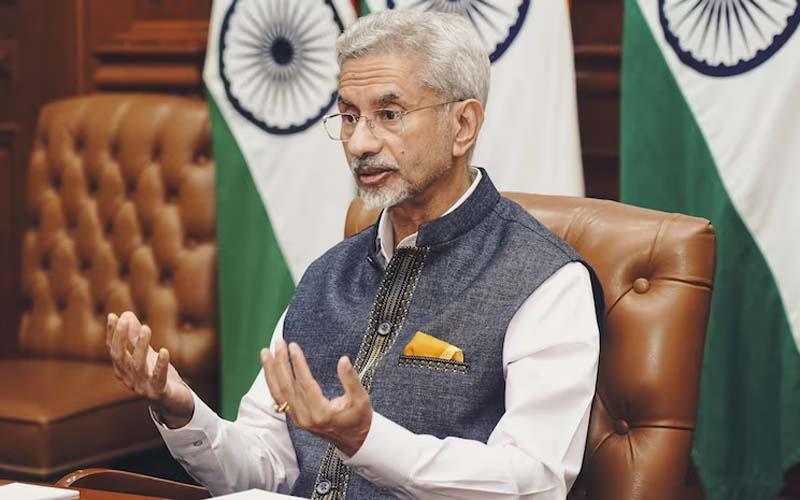Galwan disrupted LAC peace; next aim de-escalation, says Jaishankar
TNN Bureau. Updated: 12/4/2024 2:55:39 AM
Front Page

New Delhi : India on Tuesday said it is committed to remaining engaged with China to find a fair and mutually acceptable settlement of the boundary issue but made it clear that its ties with Beijing will be contingent upon strictly respecting the sanctity of the LAC and adhering to the pacts on border management with no attempt to unilaterally alter the status quo.
Making a statement in the Lok Sabha in which he articulated three key principles for engagement with China, External Affairs Minister S Jaishankar said the disengagement of troops has been achieved in "full" in eastern Ladakh through a step-by-step process, culminating in Depsang and Demchok. India now expects the commencement of talks on remaining issues that it had placed on the agenda, he added.
Jaishankar said the conclusion of the disengagement phase now allows "us to consider other aspects of the bilateral engagement in a calibrated manner, keeping our national security interests first and foremost".
India was and remains very clear that the three key principles must be observed in all circumstances, he said, explaining: "one: both sides should strictly respect and observe the Line of Actual Control (LAC), two: neither side should attempt to unilaterally alter the status quo, and three: agreements and understandings reached in the past must be fully abided by in their entirety".
Jaishankar's detailed statement came weeks after the armies of India and China completed the disengagement of troops from two last face-off points in eastern Ladakh, effectively ending the over four-year military face-off along the LAC in that region.
"The next priority will be to consider de-escalation, that would address the massing of troops along the LAC with associated accompaniments," he said.
"It is also evident that the management of the border areas will require further attention in the light of our recent experiences."
The external affairs minister, referring to previous disengagements in some of the other friction points along the LAC in eastern Ladakh, said the temporary steps can be "revisited".
"In a few other places where friction occurred in 2020, steps of a temporary and limited nature were worked out, based on local conditions, to obviate the possibility of further friction," he said.
"This, I must stress, applies to both sides and can be revisited as the situation demands. In that sense, our stance has been resolute and firm and serves our national interest fully," he added.
On India's expectations on the direction of its ties with China in the near future, Jaishankar said maintenance of peace and tranquility in border areas is a prerequisite.
"Our relationship had progressed in many domains, but was obviously negatively affected by recent events. We are clear that the maintenance of peace and tranquility in border areas is a pre-requisite for the development of our ties," he said.
"In the coming days, we will be discussing both de-escalation as well as effective management of our activities in the border areas."
The external affairs minister also delved into the larger boundary question between the two countries including China's "illegal occupation" of 38,000 square km of Indian territory in Aksai Chin as a result of the 1962 conflict and the events that preceded it.
"Furthermore, Pakistan illegally ceded 5,180 sq km of Indian territory to China in 1963, which had been under its occupation since 1948."
"India and China have held talks for multiple decades to resolve the boundary issue. While there is a LAC, it does not have a common understanding in some areas," he said.
"We remain committed to engaging with China through bilateral discussions to arrive at a fair, reasonable and mutually acceptable framework for a boundary settlement."
Elaborating on the government's approach following the Galwan Valley clashes in 2020, he said it was not possible to continue the normal exchanges, interactions and activities as in the past.
"In this regard, we made clear that the development of our ties was contingent on the principles of mutual sensitivity, mutual respect and mutual interests," he said.
Throughout this period, he noted that the government maintained that India-China relations cannot be normal in the absence of peace and tranquility in the border areas.
"The combination of a firm and principled stance on the situation in the border areas as well as our clearly articulated approach to the totality of our ties have been the foundation of our engagement with China for the last four years," he said.
"We have been very clear that the restoration of peace and tranquility would be the basis for the rest of the relationship to move forward."
Jaishankar also briefed the Lok Sabha on the October 21 agreement with China on Depsang and Demchok.